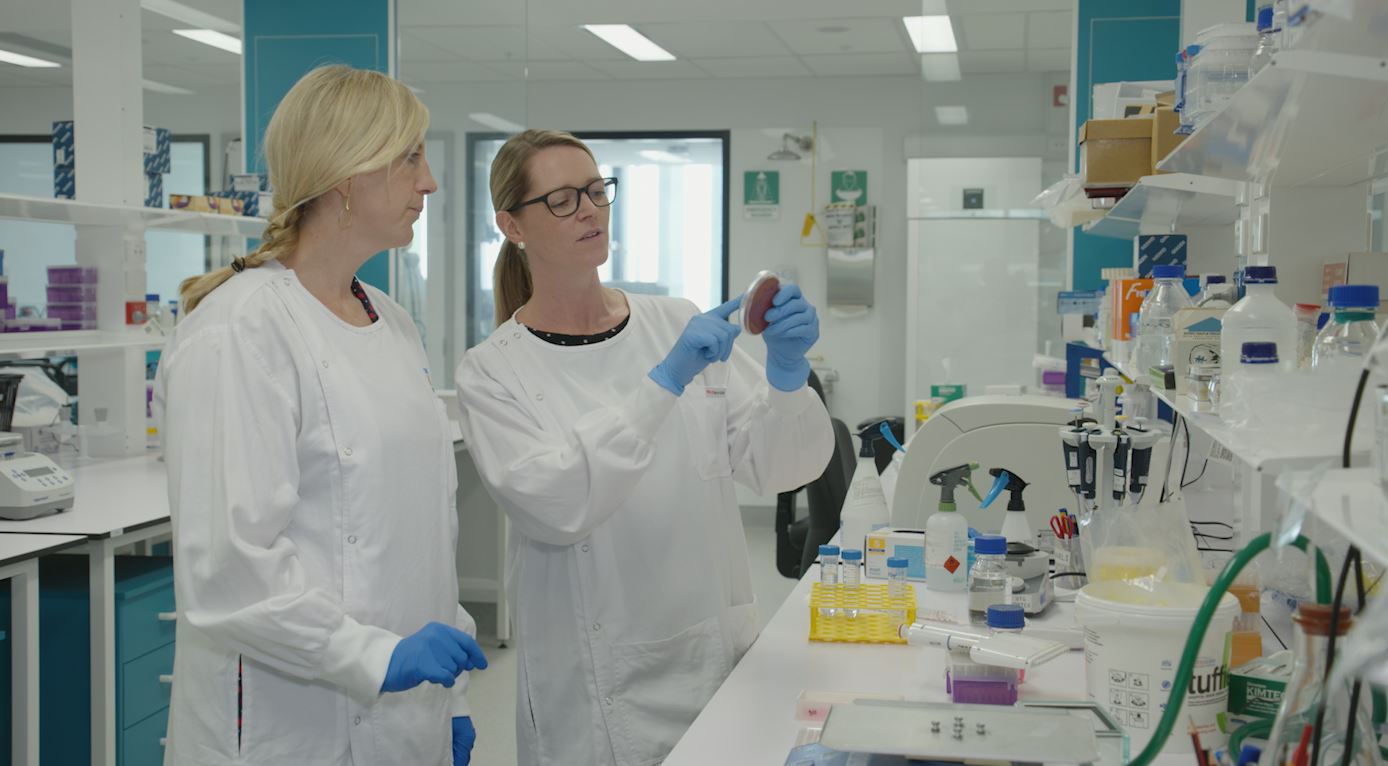Search
Showing results for "A"
Research
Environmental Factors in Children's Asthma and Respiratory EffectsChildhood asthma is a condition characterized by airflow obstruction that varies in time spontaneously, in response to various environmental stimuli...

Researchers from The Kids Research Institute Australia who are working to better understand the serious threat climate change poses to children’s health have led a study revealing the dramatically heightened risk of preterm births as the world gets hotter.

Wiping out childhood ear infections could become a reality thanks to new research identifying the main bacteria responsible for recurrent ear infections and repeat ear surgeries.
Research
Deletions in the CDKL5 5 untranslated region lead to CDKL5 deficiency disorderPathogenic variants in the cyclin-dependent kinase-like 5 (CDKL5) gene are associated with CDKL5 deficiency disorder (CDD), a severe X-linked developmental and epileptic encephalopathy.
Research
DEFEND CF: Biomarkers to define the treatment end-point for pulmonary exacerbations in cystic fibrosisSensitive and reliable tests are required to monitor lung disease severity in cystic fibrosis.
Research
Transcriptional rewiring in CD8+ T cells: implications for CAR-T cell therapy against solid tumoursT cells engineered to express chimeric-antigen receptors (CAR-T cells) can effectively control relapsed and refractory haematological malignancies in the clinic. However, the successes of CAR-T cell therapy have not been recapitulated in solid tumours due to a range of barriers such as immunosuppression, poor infiltration, and tumour heterogeneity.
Research
Co-design of the neurodevelopment assessment scaleNeurodevelopmental disorders (NDDs) have high comorbidity rates and shared etiology. Nevertheless, NDD assessment is diagnosis-driven and focuses on symptom profiles of individual disorders, which hinders diagnosis and treatment. There is also no evidence-based, standardized transdiagnostic approach currently available to provide a full clinical picture of individuals with NDDs. The pressing need for transdiagnostic assessment led to the development of the Neurodevelopment Assessment Scale.
Research
Expert survey: safer research with parent survivors of child maltreatmentIntergenerational trauma research typically focuses on parent survivors. No specific guidelines are available for conducting research with parent survivors despite potentially unique risks. To investigate research safety with parent survivors, we conducted an online survey of 38 researchers regarding experiences of parent survivors in their research, precautions taken, ethical review experiences, and researchers’ mental health during the project(s).
Research
Net benefit of smaller human populations to environmental integrity and individual health and wellbeingThe global human population is still growing such that our collective enterprise is driving environmental catastrophe. Despite a decline in average population growth rate, we are still experiencing the highest annual increase of global human population size in the history of our species-averaging an additional 84 million people per year since 1990.
Research
Reliability, Validity and Acceptability of the PEDI-CAT with ASD Scales for Australian Children and Youth on the Autism SpectrumThe PEDI-CAT (ASD) is used to assess functioning of children and youth on the autism spectrum; however, current psychometric evidence is limited. This study aimed to explore the reliability, validity and acceptability of the PEDI-CAT (ASD) using a large Australian sample.
